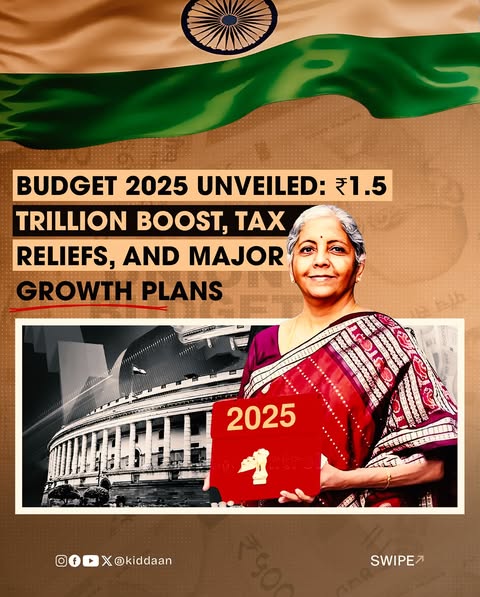Tax reform to stimulate economic growth.
Politics Politics of IndiaPosted by NewAdmin on 2025-02-03 09:22:30 |
Share: Facebook | Twitter | Whatsapp | Linkedin Visits: 21

In recent Indian political developments, the government has introduced significant tax reforms aimed at stimulating economic growth and providing relief to the middle class. Finance Minister Nirmala Sitharaman announced a major overhaul of income tax laws, including raising the income tax exemption limit from ₹700,000 to ₹1.28 million annually. This change ensures that individuals earning up to ₹1.28 million ($14,800) will not be subject to income tax, effectively increasing disposable income for millions of taxpayers. The move is anticipated to boost consumption, which accounts for approximately 60% of India's GDP, and has been well-received by top executives across various sectors. However, some analysts express concerns that these tax cuts may prioritize short-term economic relief over long-term structural reforms necessary for sustained growth. The government's reduction in capital spending and infrastructure investment has raised questions about its strategy to achieve higher growth rates, especially with GDP growth projected to decline to 6.4% from the previous 8.2%. Experts argue that deeper reforms in areas such as agricultural markets, labor laws, and business regulations are essential to reach the desired 8% growth rate.
In the international arena, India is reassessing its position on the global corporate tax deal following the United States' withdrawal from the 2021 agreement. The deal, which involved 140 nations under the Organization for Economic Co-operation and Development (OECD), aimed to establish a minimum corporate tax rate of 15% to prevent tax avoidance by multinational companies. Finance Secretary Tuhin Kanta Pandey emphasized the need to reconsider the framework of the deal, particularly given that many major tech companies are based in the U.S.
Search
Categories
Recent News
- Rajasthan's Ram Katha U-Turn: Teachers Recalled from Religious Event
- Earth's Atmosphere: A Cosmic Balancing Act
- Indian Shooting Triumphs: Rana's Bronze and Team Silver
- Andhra Pradesh MLA's Unique Scooter Inspection Tour
- Air India's Fuel Switch Woes: A Troubling Pattern
- Mamata Banerjee's Supreme Court Showdown: A Battle for Democracy
- AP EAPCET 2026: Unlocking Andhra Pradesh's Engineering Aspirations
- Fatal Leap: Man's Tragic Encounter with Overhead Wires
Popular News
- Navigating IPO Market Dynamics Amid Volatility and Regulatory Changes
- Massive Worldwide Microsoft Outage Disrupts Multiple Sectors
- Panjapur Bus Stand to Reshape TNSTC Routes
- తెలుగుదేశం పార్టీ - పేదరికాన్ని నిర్మూలించడంలో వాగ్దానం
- Universities Embrace Remote Learning Technologies Amidst Ongoing Pandemic